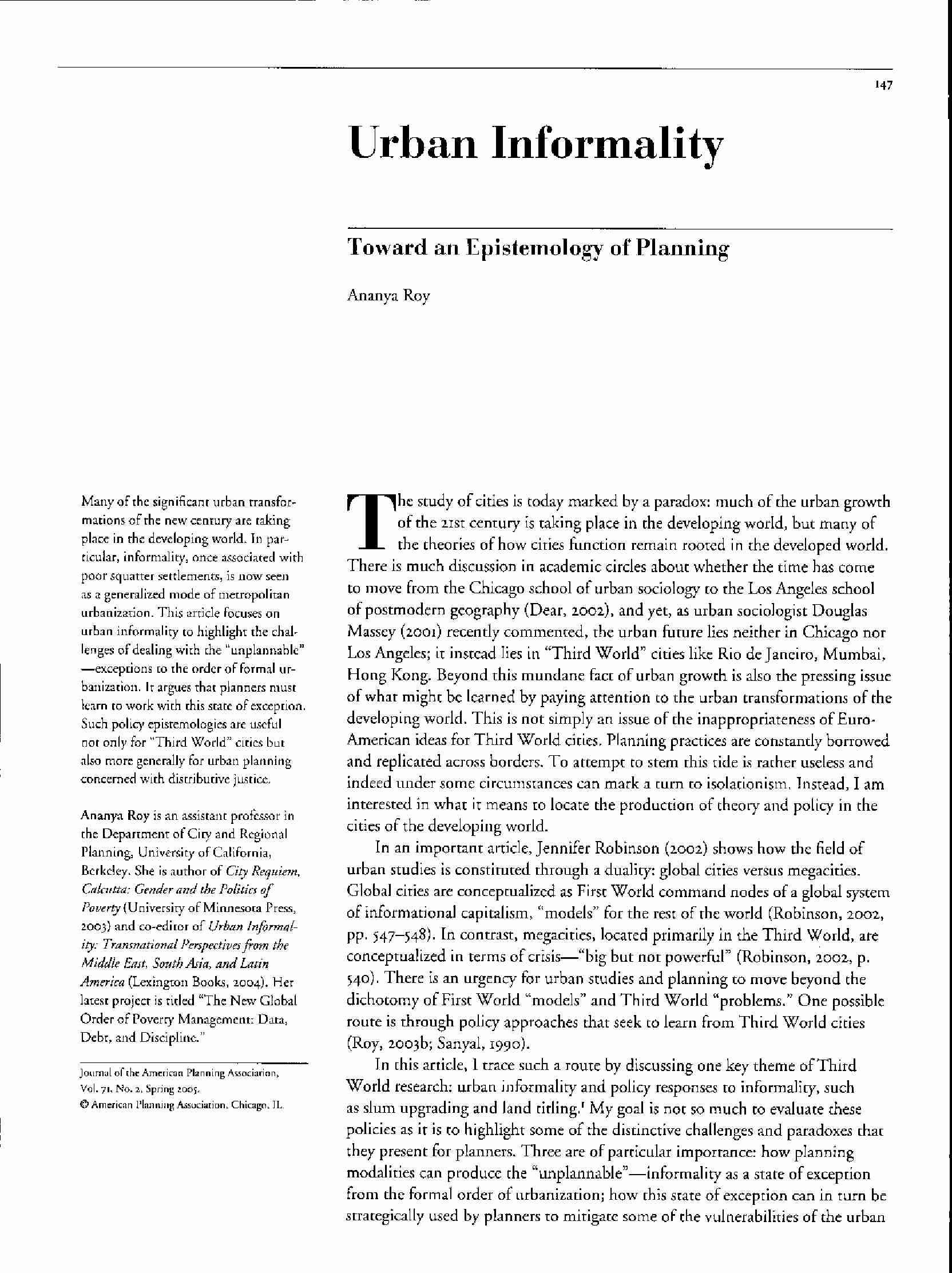Urban Informality: Towards an Epistemology of Planning
The study of cities is today marked by a paradox: much of the urban growth of the 21st century is taking place in the developing world, but many of the theories of how cities function remain rooted in the developed world. There is much discussion in academic circles about whether the time has come to move from the Chicago school of urban sociology to the Los Angeles school of postmodern geography (Dear, 2002), and yet, as urban sociologist Douglas Massey (2001) recently commented, the urban future lies neither in Chicago nor Los Angeles; it instead lies in "Third World" cities like Rio de Janeiro, Mumbai, Hong Kong.
View list of all: Journal Articles

